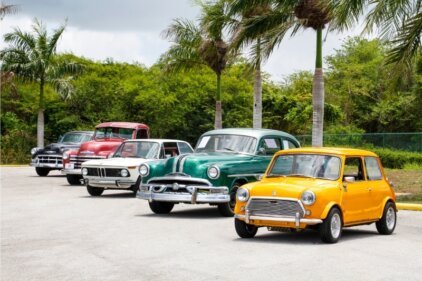When it comes to personal transportation, the age-old debate between motorcycles and cars has been a topic of much discussion. In this comprehensive article, We’ll delve into the intricacies of cost, efficiency, and the overall experience to help you make an informed decision on which option might be the better fit for your needs.
Introduction: Motorcycle vs Car
The choice between a motorcycle and a car is a highly personal one, with each option offering its own unique set of advantages and disadvantages. Whether you’re a seasoned enthusiast or a first-time buyer, understanding the key differences can be crucial in determining the best fit for your lifestyle and preferences.
Cost Comparison: Initial Purchase, Fuel, and Maintenance
One of the primary factors to consider when choosing between a motorcycle and a car is the cost. Let’s take a closer look at the financial implications of each option:
- Initial Purchase: Motorcycles, on average, tend to have a lower upfront cost compared to their four-wheeled counterparts. The cost of a new motorcycle can range from a few thousand pounds for a basic model to tens of thousands for high-end performance bikes. In contrast, the average price of a new car in the UK is typically higher, often starting around £20,000 and reaching well over £50,000 for premium or luxury vehicles.
- Fuel Efficiency: When it comes to fuel economy, motorcycles generally have a significant advantage over cars. Motorcycles can achieve fuel efficiencies of 50-80 miles per gallon (mpg), while the average car in the UK typically ranges between 30-50 mpg. This translates to substantial savings on fuel costs for motorcycle riders.
- Maintenance: Maintaining a motorcycle is generally less expensive than maintaining a car. Motorcycle parts and labour costs are often lower, and the overall maintenance requirements are typically less demanding. However, it’s important to factor in the costs of protective gear, such as helmets, jackets, and boots, which are essential for motorcycle riders.
Efficiency Comparison: Fuel Economy and Emissions
Efficiency is another crucial aspect to consider when choosing between a motorcycle and a car. Let’s explore the differences in fuel economy and emissions:
- Fuel Economy: As mentioned earlier, motorcycles have a clear advantage when it comes to fuel efficiency. Their lightweight design and smaller engines allow them to consume less fuel per mile, making them a more cost-effective and environmentally-friendly option.
- Emissions: Due to their superior fuel efficiency, motorcycles generally produce lower emissions compared to cars. This is particularly relevant in the context of environmental concerns and the growing emphasis on sustainability. Motorcycles typically have a smaller carbon footprint, contributing to a more eco-friendly mode of transportation.
Experience Comparison: Comfort, Convenience, and Enjoyment
The experience of riding a motorcycle or driving a car can be vastly different. Let’s delve into the various aspects that contribute to the overall experience:
- Comfort: Cars generally offer a more comfortable and spacious driving experience, with features like climate control, adjustable seating, and ample storage space. Motorcycles, on the other hand, can be more physically demanding, requiring the rider to maintain balance and navigate through traffic more actively.
- Convenience: Cars provide a higher level of convenience, especially for tasks like transporting large or bulky items, carrying multiple passengers, and navigating inclement weather. Motorcycles, however, can offer greater maneuverability and the ability to navigate through congested traffic more easily.
- Enjoyment: For many, the thrill and excitement of riding a motorcycle are unparalleled. The sense of freedom, connection with the environment, and the adrenaline rush that comes with navigating winding roads can be a truly exhilarating experience. Cars, while offering a more comfortable and practical mode of transport, may not always provide the same level of riding enjoyment.
Safety Comparison: Accident Rates and Protective Gear
Safety is a crucial consideration when choosing between a motorcycle and a car. Let’s examine the key differences in this aspect:
- Accident Rates: Statistically, motorcycles have a higher accident rate compared to cars. This is primarily due to their smaller size, reduced visibility, and the increased vulnerability of the rider. However, it’s important to note that proper training, defensive riding techniques, and the use of protective gear can significantly improve the safety of motorcycle riders.
- Protective Gear: Motorcycle riders are required to wear protective gear, such as helmets, jackets, pants, and boots, to mitigate the risks associated with accidents. This additional equipment can provide a higher level of protection for the rider, but it also adds to the overall cost and convenience of riding a motorcycle.
Environmental Impact: Carbon Footprint and Sustainability
As environmental concerns continue to gain prominence, the impact of our transportation choices on the planet is an essential factor to consider:
- Carbon Footprint: As mentioned earlier, motorcycles generally have a smaller carbon footprint due to their superior fuel efficiency and lower emissions. This makes them a more environmentally-friendly option compared to cars, particularly in urban areas where air quality and emissions are of greater concern.
- Sustainability: Motorcycles require fewer raw materials and resources for their production, and they often have a longer lifespan compared to cars. This contributes to a more sustainable mode of transportation, aligning with the growing emphasis on eco-friendly solutions.
Considerations for Choosing Between a Motorcycle and a Car
When it comes to deciding between a motorcycle and a car, there is no one-size-fits-all solution. The choice ultimately depends on your individual needs, preferences, and lifestyle. Here are some key factors to consider:
- Purpose and Usage: Evaluate how you plan to use your mode of transportation. Are you primarily commuting to work, running errands, or engaging in recreational activities? The intended use case can heavily influence your decision.
- Personal Preferences: Consider your comfort level, riding experience, and the level of enjoyment you derive from each option. If the thrill of riding a motorcycle appeals to you, it may be the better choice.
- Practical Considerations: Assess factors like the number of passengers you need to transport, the amount of cargo you typically carry, and the weather conditions you’ll be facing. These practical aspects can significantly impact the suitability of a motorcycle or a car.
- Safety and Risk Tolerance: Understand the safety implications of each option and your willingness to assume the associated risks. If you prioritize maximum protection, a car may be the safer choice.
- Environmental Consciousness: If you’re particularly environmentally-conscious, the lower carbon footprint and more sustainable nature of a motorcycle may be a compelling factor in your decision.
Case Studies: Real-Life Experiences of Motorcycle and Car Owners
To provide a more comprehensive perspective, let’s explore the real-life experiences of both motorcycle and car owners:
Motorcycle Owner’s Perspective: John, a 35-year-old professional living in a bustling city, decided to switch from driving a car to riding a motorcycle. He cites the significant cost savings on fuel and maintenance as the primary driving factors, along with the thrill and freedom he experiences on the open road. However, John acknowledges the increased risks and the need for constant vigilance while navigating through traffic. He has invested in high-quality protective gear and regularly attends safety courses to mitigate these concerns.
Car Owner’s Perspective: Sarah, a 45-year-old mother of two, prefers the convenience and comfort of driving a car. She values the ability to transport her family and their belongings with ease, as well as the protection offered by the car’s structure in the event of an accident. While Sarah recognizes the environmental benefits of a motorcycle, she prioritizes the practicality and safety aspects for her daily commute and family activities.
Conclusion: Which is Better for You – a Motorcycle or a Car?
In the end, the choice between a motorcycle and a car ultimately comes down to your individual needs, preferences, and lifestyle. Both options offer unique advantages and disadvantages, and the decision should be based on a careful consideration of the factors discussed in this article.





